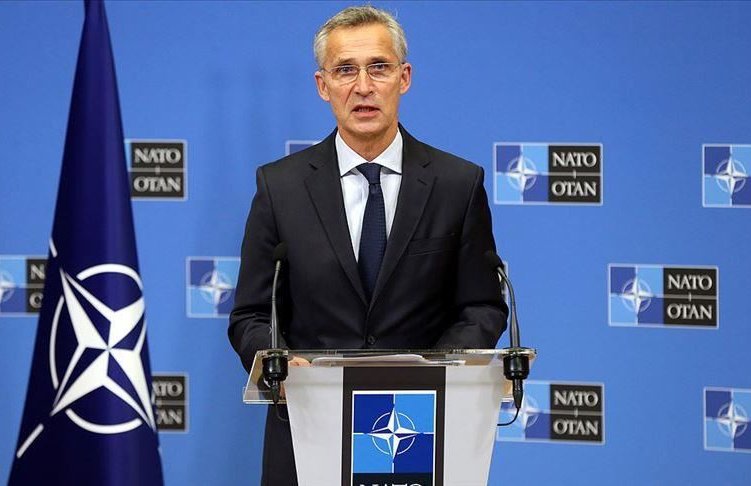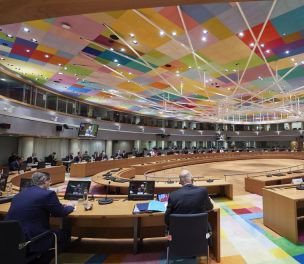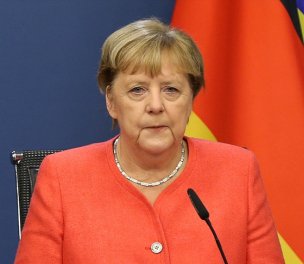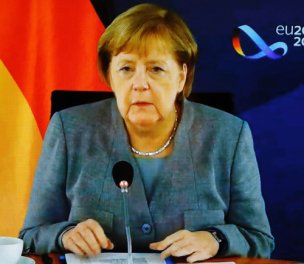Stoltenberg: Turkey, Greece meet at NATO headquarters on daily basis

Turkey and Greece meet on a daily basis at NATO headquarters in an attempt to resolve disputes in the Eastern Mediterranean, NATO Secretary-General Jens Stoltenberg has said.
"Greece and Turkey meet on the daily basis here at the NATO headquarters. I think that's one of the advantages of NATO is that we provide a platform for our allies to meet and to discuss on a daily basis," Secretary-General Jens Stoltenberg told a news conference in Brussels yesterday (October 22), following a virtual meeting of NATO defense ministers.
Noting that the talks on the deconfliction mechanism was developed during the technical meetings between the two neighboring countries, Stoltenberg said: "I think that's important because this is for us a technical military issue, where we need to make sure that you have the tools to prevent incidents and accidents."
He said that the ministers expressed "strong support for the NATO deconfliction mechanism" in the Eastern Mediterranean and that avoiding loss of lives at sea and in the air "is a heavy responsibility" which should not be placed on the shoulders of captains and pilots operating in the region.
"It is for us as politicians to do everything we can to resolve these disputes at our level," he said.
Recalling that the 24/7 hotline was established between the two countries using NATO safe and secure networks, Stoltenberg added: "We are now looking into how we can further expand and strengthen this mechanism."
He also welcomed the "flexibility" of Ankara and Athens to establish such a mechanism.
Stoltenberg said the military deconfliction mechanism may not solve the disputes but that it can provide the "space for political discussion."
"And I hope it can pave the way for exploratory talks under German auspices as soon as possible," he said.
Nagorno-Karabakh conflict
Referring to his meeting with Armenia's President Armen Sarkissian in Brussels on Wednesday, Stoltenberg said he told Sarkissian that NATO is not a part of the conflict in Nagorno-Karabakh, also known as Upper Karabakh.
He also told the Sarkissian that Turkey is a valued ally of NATO.
Stating that when the president of a partner nation comes to Brussels and asks for a meeting, it is natural to meet that leader, Stoltenberg said he had also met Azerbaijan's President Ilham Aliyev previously at the headquarters.
"And of course, I'm ready to talk, to meet the President of Azerbaijan," he said, adding that in case Aliyev makes such a request.
Timeline of the Eastern Mediterranean crisisThe tension between Turkey and Greece over their right to explore energy resources in the Eastern Mediterranean has seriously escalated over the last months. The latest developments leading to this escalation are briefly as follows: On July 21, Turkey issued its first Navtex alert for Oruç Reis seismic vessel's exploration activities in the Eastern Mediterranean. On July 28, Turkey announced after Germany's diplomatic efforts that it suspended hydrocarbon exploration activities and stated that it was ready to talk with Greece. On August 6, Greece and Egypt signed a maritime border agreement. On August 10, Turkey announced that its drillship Oruç Reis would resume energy exploration in the Eastern Mediterranean. It said the ship will continue its work along with the ships Cengiz Han and Ataman until August 23. On August 14, the EU foreign miniters discussed the crisis at an extraordinary meeting, calling on Turkey to end hydrocarbon exploration activities in contested waters. On August 16, Turkey issued a Navtex, announcing that its drill ship Yavuz will continue its work exploring for energy resources off the island of Cyprus. On August 23, Turkey issued another Navtex, stating that the Oruç Reis vessel would continue its activities until August 27. On August 24, Greece held joint naval drills with the US in the south of Crete island. One day later, Turkey conducted naval exercises with Italy. On August 25, Germany's Minister of Foreign Affairs Heiko Maas visited Athens and Ankara to encourage the two countires to have direct talks. On the same day, Turkey held replenishment exercises with Italy in the Eastern Mediterranean. On August 26, US President Donald Trump had phone talks with President Recep Tayyip Erdoğan and Prime Minister of Greece Kyriakos Mitsotakis, urging them to reduce tensions and start dialogue. On the same day, Turkey and the US conducted joint maritime exercises. On August 27 and 28, EU foreign ministers met with the Eastern Mediterranean crisis on the top of their agenda. The Union's foreign polict head Josep Borrell said after the meeting that Turkey's ships might be sanctioned if they continued hydrocarbon activities. Turkey's Ministry of National Defense on August 28 announced that it intercepted six F-16 fighters planes of Greece, which it said were closing in on the area where Turkey issued a Navtex. On September 1, the US lifted the arms embargo on Southern Cyprus. On September 2, Turkey issued two Navtex alerts for Russia's gunnery exercises in the Eastern Mediterranean. It was stated that Russia would conduct exercises in two different areas that correspond to Turkey's hydrocarbon exploration activities on the east and west of the Cyprus island. On September 3, NATO Secretary General Jens Stoltenberg said, "Following my discussions with Greek and Turkish leaders, the two Allies have agreed to enter into technical talks at NATO to establish mechanisms for military deconfliction to reduce the risk of incidents and accidents." On September 4, Prime Minister of Greece Kyriakos Mitsotakis said that Greece would only enter into a dialogue with Turkey if it "stops provocations" in the Eastern Mediterranean. Shortly before this statement, Turkey's Foreign Ministry stated, "Turkey is ready to enter into dialogue with Greece without any preconditions." On September 10, military delegations from Turkey and Greece had technical talks at NATO headquarters to prevent military engagement. On September 15, issuing a new NAVTEX alert for the Chios Island of Greece, Turkey argued that Greece had militarized Chios Island in violation of the 1923 Lausanne Peace Treaty. The military delegations from the two countries held the second technical meeting. On September 17, the European Parliament warned Turkey of sanctions if it continues its hydrocarbon exploration activities. On September 18, Turkey summoned Greece's envoy over a newspaper headline about President Erdoğan. On September 21, the US stated that it does not consider the Seville Map on the maritime borders of Turkey and Greece as a document that has legal significance. On October 1, A military deconfliction mechanism has been established between Turkey and Greece. On October 2, The European Union (EU) stated after its leaders' summit in Brussels that it wanted to give a chance to constructive political dialogue but warned that all options were on the table if that was not the case. On October 8, foreign ministers of Turkey and Greece had their first meeting since the start of the crisis. On October 12, Turkey issued a new 10-day Navtex for its seismic research vessel Oruç Reis and the vessel left Antalya Port early in the morning On October 13, it was announced that Germany's Foreign Minister Heiko Maas cancelled his visit to Turkey and the EU condemned Turkey's new Navtex, saying, "The latest Navtex announcements by Turkey affecting Greek and Cypriot maritime zones are regrettable." On October 15, at a joint press conference in Paris, France's FM Le Drian and Germany's FM Maas slammed Turkey's decision to send Oruç Reis back to Eastern Mediterranean. On October 22, Turkey extended the 10-day Navtex for Oruç Reis until October 27. |
(VK)







-13.jpg)
-132.jpg)

